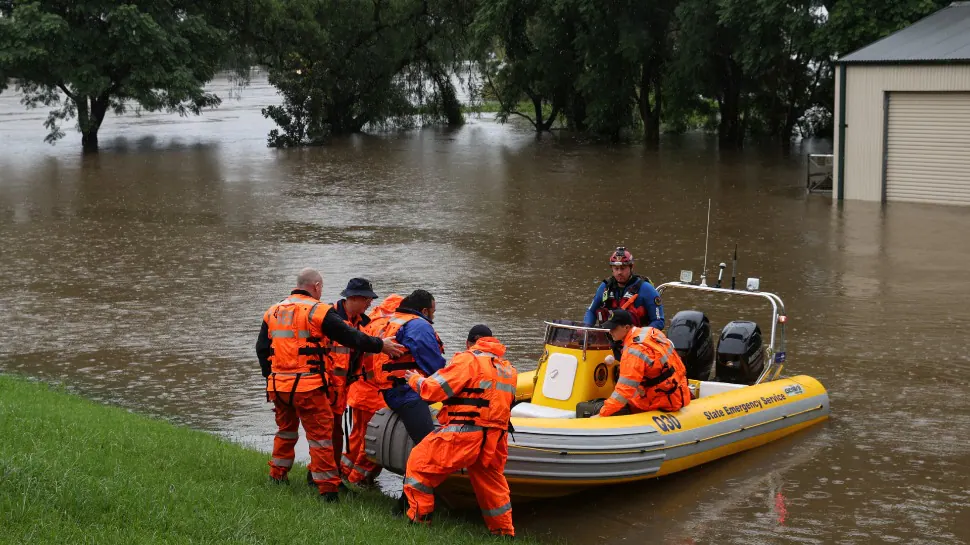



Article by: Hari Yellina
When Peter Markey, a former Gloucester farmer, learned that a colleague farmer had lost most of his herd in the Lismore floods, he decided to help. “All I wanted to do was accomplish something,” he explained. Peter, who had previously worked as a sheep farmer in Coonamble and a cattle farmer in Gloucester, was well aware of the difficulties of farming and how natural calamities can be devastating. He was also storing 100 bales of silage at the time. “After my daughter and son-in-law sold their farm, the leftover silage was held on my land until it could be sold,” he explained.
Following the Lismore floods, he called them and asked if they wanted to give, which they gladly accepted. Peter then made plans to carry the goods in his own semi-trailer. Knowing it would take multiple trips, he put out a call on Facebook on Thursday, March 3, to see if he could recruit a few additional trucks to assist. “I can carry 27 to 33 bales per load, depending on the size of the bales.” Local farms contributed more feed after seeing his message, and the Wauchope Show Society organised two transport trucks (one from Wauchope and one from Harrington) to assist.
“They had insufficient hay and too many vehicles, whereas I had insufficient hay and too few trucks,” Peter explained. Three trucks filled up with 80 bales of hay and drove to Coraki on Saturday night (March 5), when the weather looked good enough to make the trip. “A list of farmers in the area who require fodder has been compiled. A single truck was dispatched to a single farm “Peter clarified. Because it was a seven-hour drive, Peter decided to stay the night so he could arrive in the morning. “It was absolutely carnage,” Peter commented as he examined a photograph he had taken of a bale of hay high in a tree’s fork.
He looked at photos of heaps of pine trees at the road’s edge from a nearby plantation, as well as rubbish washing up all around him. When Peter arrived at his location, he cautiously manoeuvred the semi-trailer into the property, through flooded automobiles that couldn’t be moved, and avoided going off the road’s edge for fear of sinking in. Peter was heartbroken at the state of the dairy farmer. “He’s milking, and dirt is all over the place.” He can’t divide his herd because there are no fences left. Peter explained, “He’s just milking them all, feeding them, and sending them on their way.” His house was flooded by a half metre of water.
“While he’s milking all day, his wife is cleaning the house out room by room, gurneying the walls, and reinstalling beds so they have a place to stay,” he explained. Peter has received an extra 300 bales of local hay as of Tuesday, March 8, and he plans to take another load up shortly, weather permitting. “I’ll simply keep driving up there in my vehicle,” he added. He’s delivering more than just silage; the farmers also require diesel. Fuel is another significant one, along with fodder. They can’t get to it or there isn’t any. Each of the trucks brought a couple of jerry cans up with them, and they will do it again on the next trip. “All we’re trying to do is keep the farmers alive,” Peter explained.